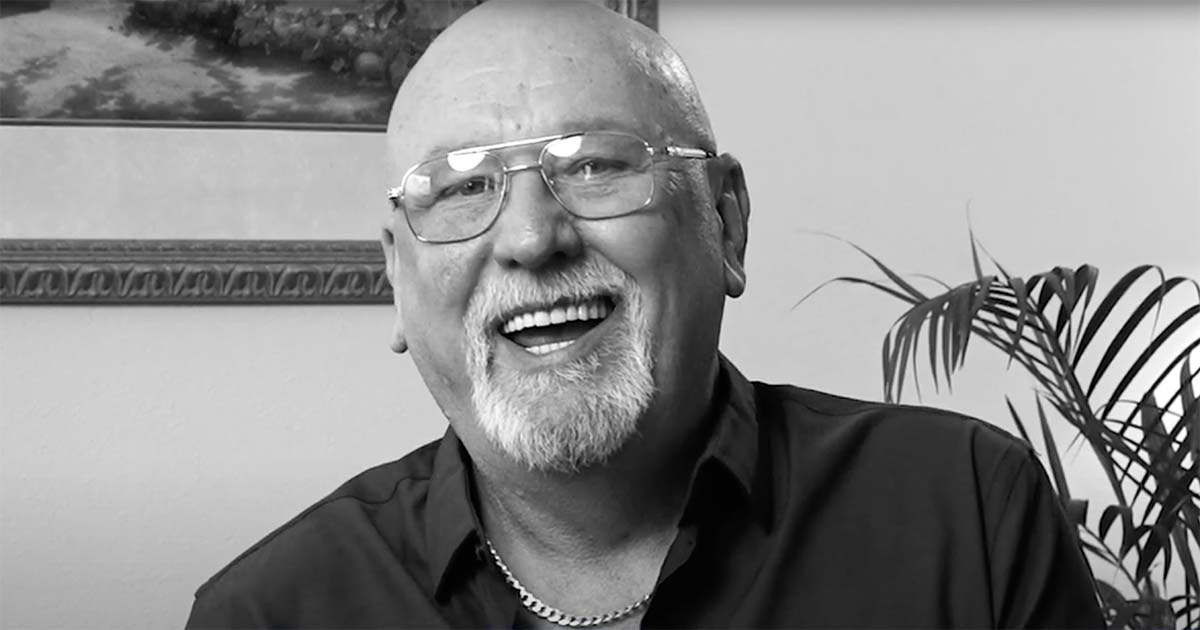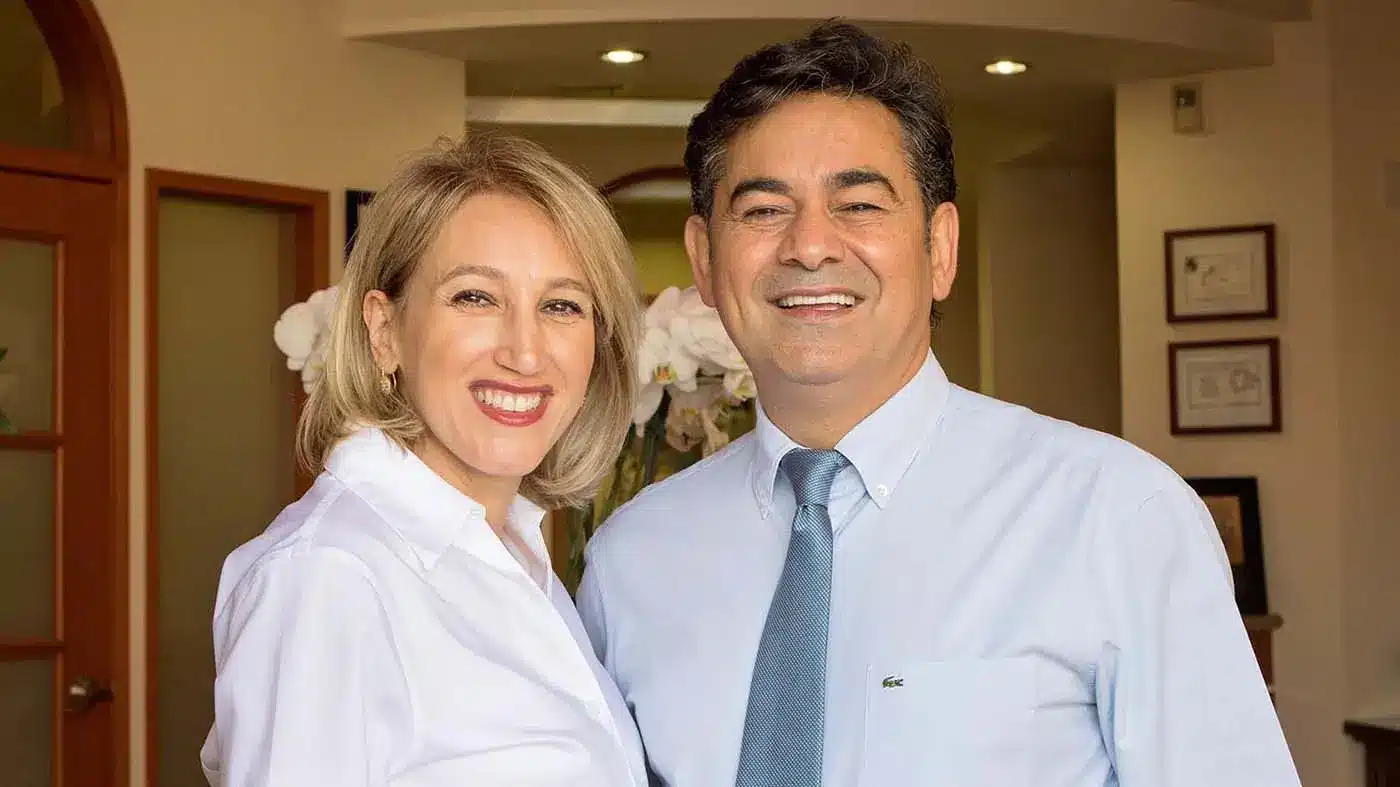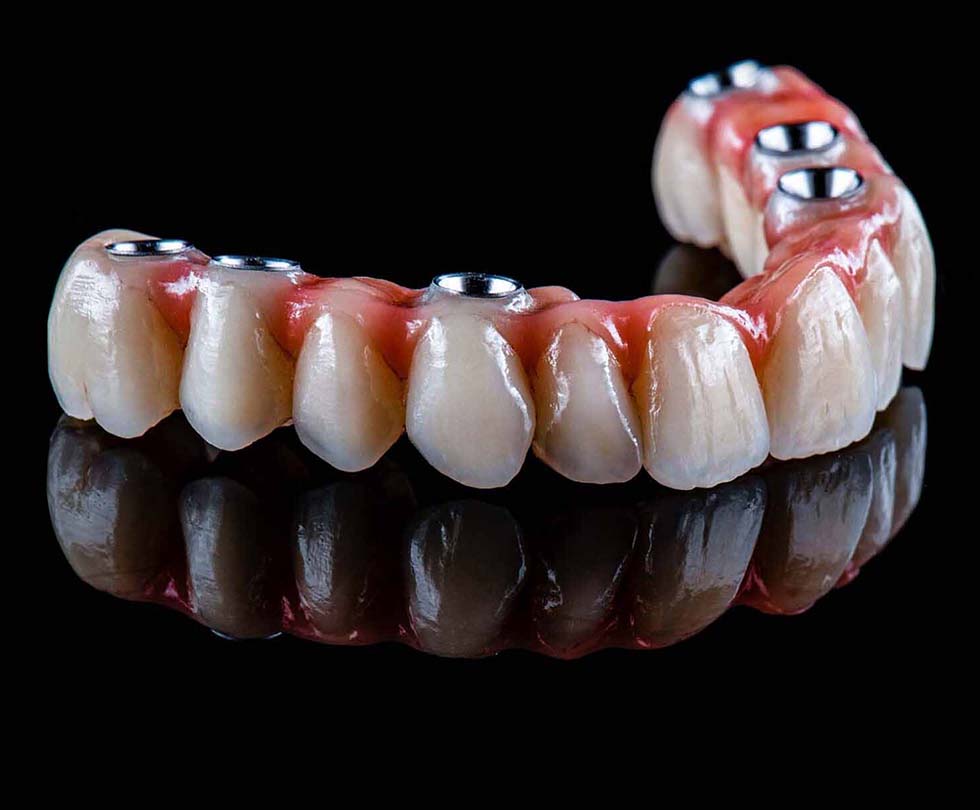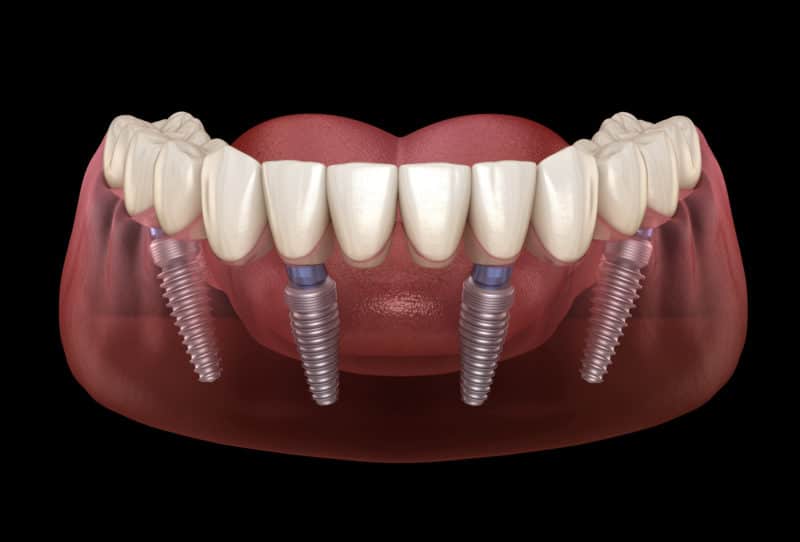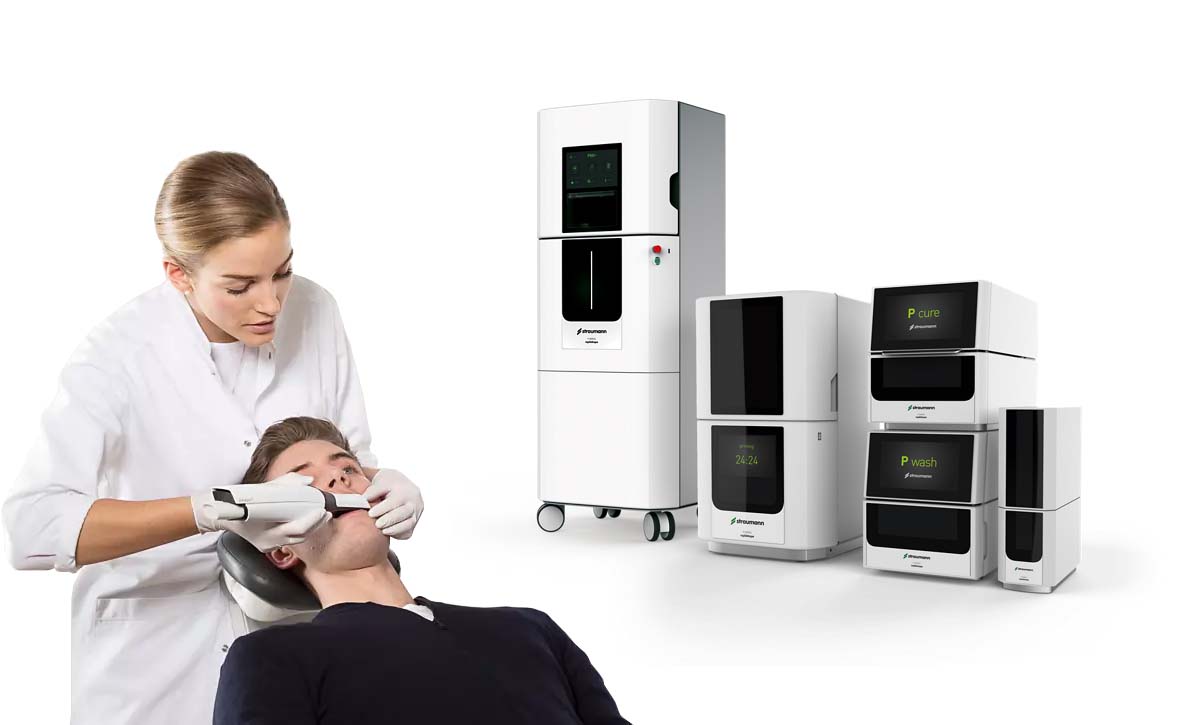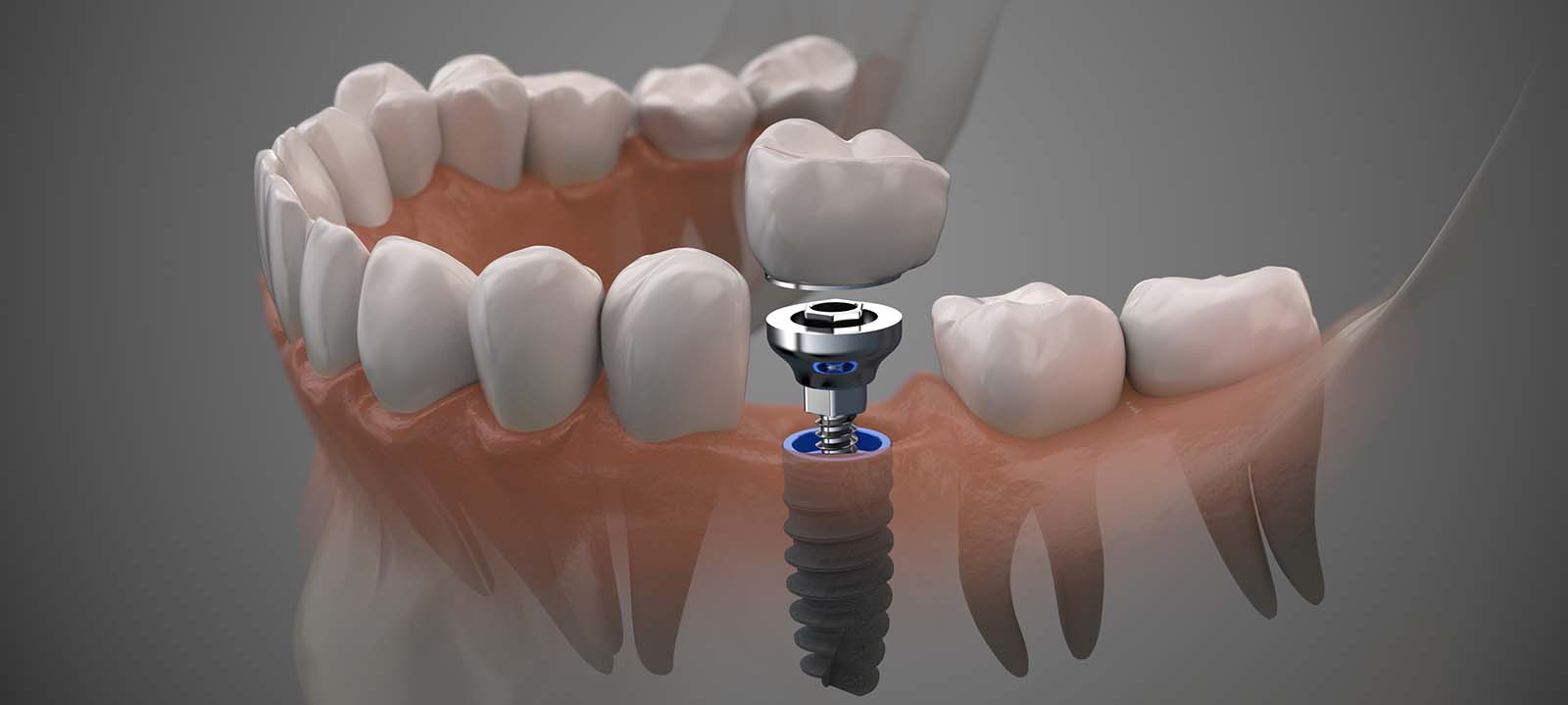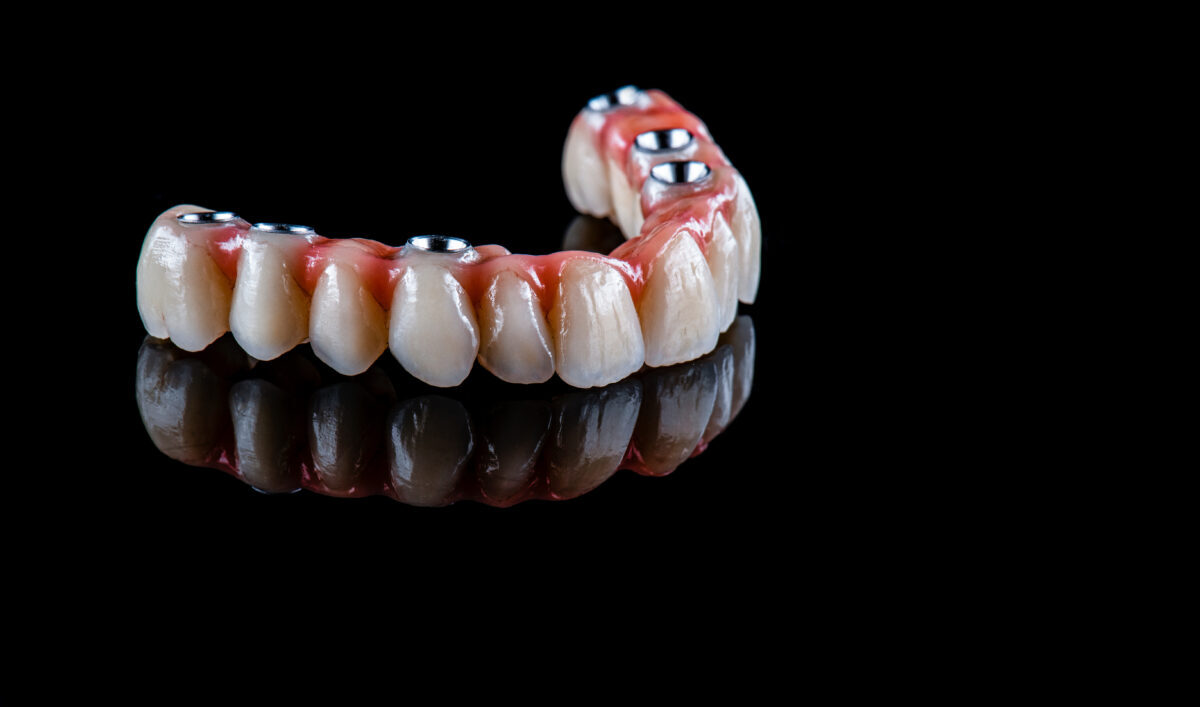When it comes to the best dental implants deal in Los Angeles, Dr. Delaram Hanookai is the premier choice for high-quality periodontics and superior results. With over 25 years of experience in periodontology, Dr. Hanookai has helped thousands of patients resolve complex dental cases and achieve beautiful, natural-looking smiles. Whether you need an oral surgeon to review your case or replace missing teeth entirely, a free consultation with Dr. Hanookai can help you determine which treatment plan is right for you. Learn more with the following comprehensive guide to dental implants in Los Angeles.
- An Overview of Los Angels Dental Implants
- How Strong are Dental Implants Compared to Real Teeth?
- Preparing Your Mouth for Dental Implants
- Who is a Candidate for Dental Implants?
- What Does the Process of Dental Implants Involve?
- Cost of Dental Implants in Los Angeles
- What are the Types of Teeth Implants?
- Free Dental Implant Consultation in Los Angeles
An Overview of Los Angels Dental Implants
We understand that you probably have questions about getting dental implants in Los Angeles. After all, there are many misconceptions about replacing missing teeth. Use this guide to demystify the dental implant procedure and transform your smile into a stunning one.

What are dental implants?
Dental implants look and feel like new teeth, and individuals get dental implants to replace one or more missing teeth. These replacements consist of three components: a screw-like base, an abutment, and a prosthetic crown. First, the periodontist surgically implants a titanium alloy screw into the jawbone. In this way, each screw forms a firm foundation to hold the matching abutment or connector piece in place. Finally, the abutment attaches each screw to the new prosthetic tooth. In due time, bone grows around the titanium implant to reinforce and anchor it into place. Notably, Dr. Hanookai performs this procedure in our clinic using state-of-the-art tools and local anesthesia.
Dental Implants vs. Bridgework and Dentures
Dental implants are permanent and do not depend on adjacent teeth for support or fitment. Because implants function like normal teeth, they feel more comfortable in your mouth. With dental implants, you can chew and speak more effectively without the risk of causing damage to other teeth.
Why Do You Need Dental Implants?
A common misconception is that dental implants are simply for cosmetic appearances. Dental implants are not merely about aesthetics, self-consciousness, or vanity. Instead, a lack of teeth is a painful and common problem that can lead to very serious health problems. If left untreated, the condition of missing teeth can cause irreversible damage like gum recession, bone loss, oral health regression, and periodontal disease. Since teeth also play an important role in the first stage of human digestion, replacing missing teeth can help you avoid digestive problems later. Undergoing dental implant surgery can help you prevent these health complications and restore a winning smile.
How Strong are Dental Implants Compared to Real Teeth?
Since getting dental implants requires a minor surgical procedure, it is only natural to inquire if implants are as strong as real teeth. The answer is that dental implants are the strongest tooth replacement option available. This is because once the periodontist surgically implants the titanium roots, your jawbone heals around the titanium through a mechanism known as osseointegration. As a result of this integration, you can chew, sneeze, laugh, and speak with the dental implants just as you could with real teeth.
Furthermore, dental implants are not vulnerable to decay like real teeth. Natural teeth are susceptible to the decay because the bacteria in your mouth create acid as they metabolize and consume sugar. This acid causes cavities that destroy tooth enamel over time. In contrast, dental implants are inorganic and do not weaken or decay. This makes dental implants the best alternative for tooth restoration.
Preparing Your Mouth for Dental Implants
For some patients, preparation for dental implants may require additional procedures. The most common preliminary procedures include initial tooth extraction, a bone graft, or a sinus lift. For example, the periodontist may need to extract unhealthy or broken teeth. In addition, you may need bone grafting to ensure a strong foundation for implants. Similarly, some patients undergo a sinus lift to ensure acceptable bone height for the implants.
While undergoing additional procedures may seem frustrating at first, the point of this preparation is to prevent any unnecessary complications down the road. If you would like to help prepare for your procedure on a personal level, be sure to plan events and activities in advance before your surgery. For example, you may need to “meal prep” soft foods so that you don’t have to worry about cooking after your surgery. You should avoid scheduling any important events or commitments until at least a week after the procedure. Prior to the surgery, you will have to refrain from eating or drinking at least 12 hours and to get a good night’s sleep. You may also need to take preventative antibiotics and arrange for someone to drive you to and from the appointment.
Who is a Candidate for Dental Implants?
Most individuals are good candidates for single, multiple, or full-set dental implants. Studies have shown that dental implants have a success rate of approximately 95 percent, so this type of dental restoration works for almost everybody. For your peace of mind, Dr. Hanookai can perform an initial exam (free of charge) to determine if implants are right for you.
Examples of good candidates for dental implants include people who are missing teeth (or have teeth on the verge of falling out) or individuals who are weary of wearing dentures for years. Other candidates include people who are genetically predisposed to “bad teeth” or those who want an improved smile or facial appearance. Implants can also provide reinforcement and ridge support for people with few or no teeth. Individuals who already have a commitment to oral hygiene make excellent candidates since implants require brushing, flossing, and dental visits just like regular teeth.
Some individuals may have underlying issues that need to be evaluated on a case-by-case basis. These may include heavy smokers, people with high-risk diabetes, or individuals who have gone extensive radiation in the upper body. Dr. Hanookai can assess your situation to help determine if implants are appropriate for you. Finally, it is important to note that children are rarely good candidates for dental implants because their jaws are still growing. Girls should be at least 15 years old and males should be at least 17 to avoid any adverse effects.
What Does the Process of Dental Implants Involve?
The process of getting dental implants is not an isolated undertaking. Instead, it is a team endeavor between you, your dentist, and your periodontist. The professionals at Dr. Hanookai’s office work diligently to provide you with an individualized treatment plan that best suits your needs.
Replacing a single tooth
A single tooth replacement includes one implant and one crown. This implant replaces an extracted or lost tooth to maintain dental alignment and oral health. Even leaving one missing tooth untreated can alter the shape of your smile, cause difficulties in speaking or eating, compromise jawbone health, and increase the vulnerability of neighboring teeth. A single-tooth implant corrects this with a simple procedure.
Replacing several teeth
Our experts can replace several teeth with implant-supported bridges. These permanent bridges are stronger and more stable than fixed bridges or removable partial dentures. This solution replaces your lost teeth without replying on structural support from neighboring teeth.
Replacing all of your teeth
Replacing all of your teeth with high-quality dental implants has several advantages over the alternatives. Foremost, dental implants are stronger and sturdier than conventional dentures. Unlike dentures that make it difficult to talk or eat certain foods, dental implants support natural biting, chewing, and speaking capacity.
In addition, dental implants serve as replacements some of your tooth roots, thereby helping prevent bone deterioration. Without roots, the bone that supported your teeth can begin to retract and reabsorb. Dental implants help prevent this type of recession by integrating with your jawbone to keep in firm and intact.
Sinus Augmentation
Sinus augmentation may include a sinus lift or a sinus elevation. A sinus lift adds bone to the upper jaw near your back teeth (molars and premolars). If you do not have sufficient bone height in your upper jaw for dental implants, you may need to get a sinus lift. A sinus elevation is a surgical procedure that creates a horizontal opening in the sinus membrane. The purpose of this surgery is to create room for a major sinus-lift bone graft.
Ridge Modification
Ridge modification corrects deformities or defects in the upper or lower jaw. This procedure is important because a deformed or flattened ridge can leave you with an inadequate amount of bone for your implants. In addition, an untreated defect can create an unflattering indentation in the jawline that is very difficult to clean.
To fix this problem, an expert can lift the gum away from the deformed ridge to treat the bony defect. The expert then rebuilds the defective area with bone or high-quality bone substitute. This modification can improve both the appearance and functionality of your jawline, ensuring that your dental implants remain effective.
Cost of Dental Implants in Los Angeles
A lot of potential customers fear the potential cost of dental implants in Los Angeles. With an abundance of people discussing expensive celebrity dental implants, it is easy to develop a misconception about our services. Fortunately, Dr. Hanookai offers a manageable treatment plan to make our services accessible to people on a range of income levels.
First, we offer a free initial consultation to determine what treatment method is right for you. Your free consultation with Dr. Hanookai may include a free exam and free computed tomography (CT) scan using state-of-the-art equipment. While other services may use fine print or hidden fees, we are 100-percent upfront about our initial consultation costs. This free service is a great way for you to get an overview of the process and begin replacing missing teeth.
Why do we offer free consultations? Dr. Hanookai believes that this is an important way for patients to understand the natural tooth replacement process. Our office offers full transparency into the procedure so that you can receive satisfactory results. In addition, we understand that people often come to our office with disheartening news about the possibilities or limitations of replacing missing teeth. For this reason, we also offer a free second opinion that we back up with a free examination.
Once you have decided to make the first step to achieving a beautiful smile, we have several convenient payment options available. For example, we have low monthly payment options, and there are also financing options available. Our financing plans are straightforward, and we offer some of the lowest prices in California. As you look for the right dental implants deal in Los Angeles, it is important not to simply look for cheap dental implants that may be low in quality. Instead, you can sign up for a free consultation today to determine the best plan for affordable dental implants. Click here to learn more about how much dental implant could cost.
What are the Types of Teeth Implants?
Just as every individual is different, dental implants come in unique sizes and types. Dr. Hanookai can work with you on an individual basis to determine which type of dental implant fits your needs.
According to the American Academy of Implant Dentistry, the two main types of implants are endosteal and subperiosteal implants. Endosteal implants are the most common (and most recommended) type of implant. With this kind of implant, an expert will insert the base directly into the jawbone to hold one or more prosthetic teeth. In contrast, subperiosteal sit on top of the jawbone and use metal framework to hold the prosthesis. This is a much less-common option for people who have minimal bone height and cannot undergo a bone augmentation procedure to fix it.
In addition to the types of implants used, there are four common implant techniques:
Single-Tooth Implants
A single implant can replace a missing tooth without compromising the health of adjacent teeth. Because an implant replaces the tooth root, it looks and functions more like a natural tooth and can better preserve the underlying bone. A single-tooth implant is more aesthetically pleasing (and easier to clean) than a bridge.
All-on-Four Implants
The All-on-Four technique places four dental implants into the available bone to support the full arch. This method may also reduce the need for bone grafting. The technique uses custom abutments to enable the placement of a temporary set of teeth on the same day. Following a recovery period in which the implants bond with your jawbone, an expert then places the permanent set of replacement teeth.
All-on-Six Implants
All-on-Six implants replace the entire set of upper or lower teeth. To perform this procedure, a professional places six implants into upper jawbone to anchor prosthetic teeth into place. This technique supports the arch and may help avoid the need for bone grafting.
Same-Day Implants
As the name implies, same-day implants enable the placement of a temporary tooth during the same appointment that the periodontist makes the implant. Also known as “immediate-load implants,” this option is a viable choice for people who have enough underlying bone to support the pressure of a temporary tooth. Click here to learn more about Same-Day Dental Implants.
Free Dental Implant Consultation in Los Angeles
We offer the following excellent services:
- Free initial consultation – This 100-percent free service allows us to establish a preliminary plan for your dental procedure.
- Free examination – We offer a free initial evaluation. Since every person is different, this shows us how to customize the procedural approach to fit your personal needs.
- Free CT scan – We offer a free CT scan to provide the best treatment and care from the very beginning.
- State of the art facility
- Free second opinion and diagnosis





